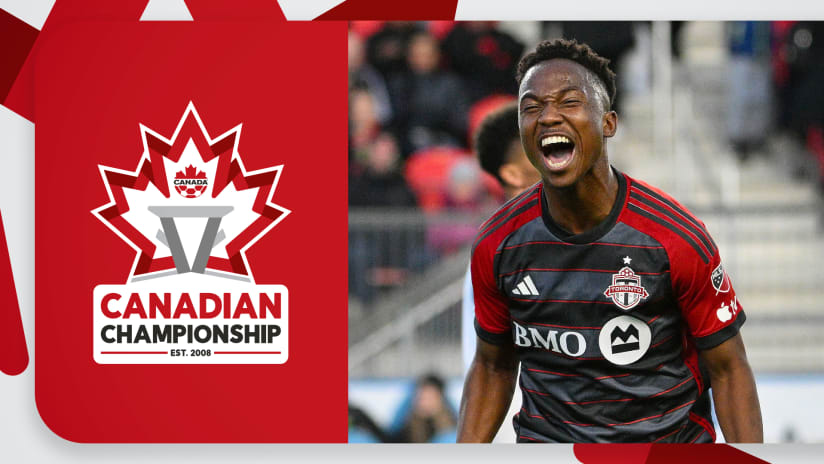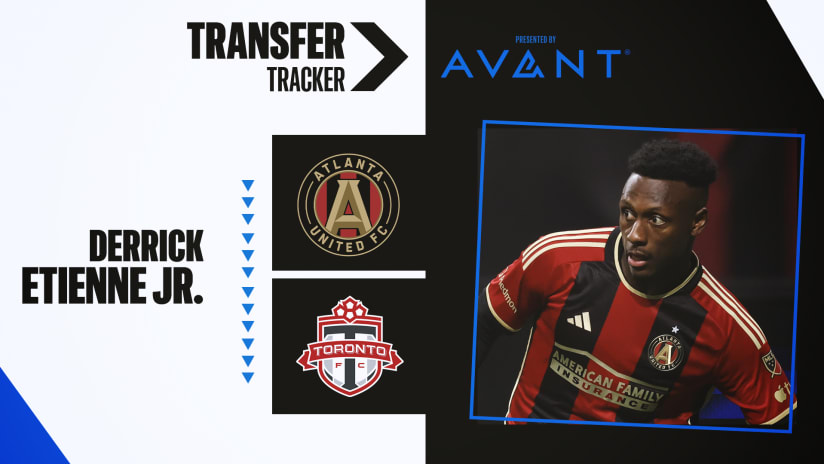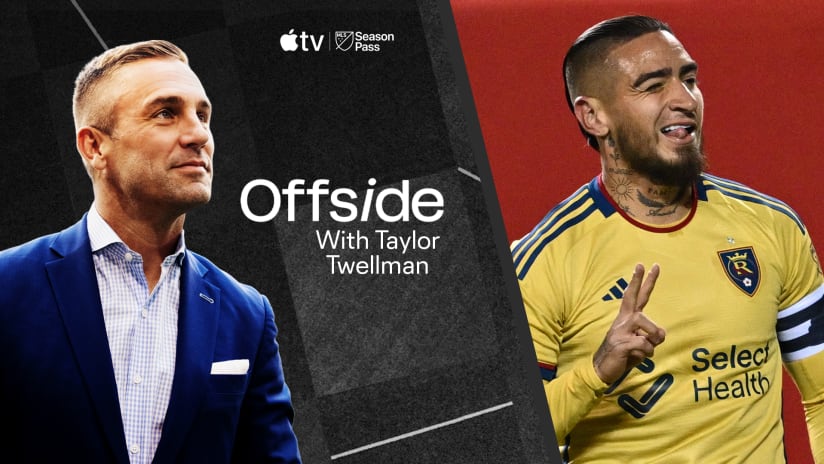The Eastern Conference playoff race is shaping up to be downright wild.
With all the dust settled from Week 27, only nine points separate the East’s third-place team, New York City FC, from its 11th-place team, the New York Red Bulls. The New England Revolution and Nashville SC both look comfortable atop the table, but the rest of the East still has plenty of time to reshuffle before the Audi MLS Cup Playoffs begin in mid-November. The narrow margins make the regular season’s final stretch pretty darn entertaining, but with so many teams so close together in the standings, it gets hard to figure out which teams belong in the playoffs and which teams maybe don’t have the bona fides.
Well, we’re going to try and make sense of the chaos.
Using Second Spectrum’s data, we’re going to look at teams Nos. 3-11 in the East to see who might secure the seven playoff places. The numbers won’t tell us everything – and they certainly won’t help us totally nail the playoff field – but they will help us learn about which teams might deserve a playoff spot more than others.
- 39 points, 26 games played
The numbers love them some NYCFC. That was true back in August when I wrote about the numbers behind New York City’s success and it’s still true now. Ronny Deila’s team has fallen out of the Supporters’ Shield race with a poor string of recent results, but they still look awfully good when you’re staring at them through Second Spectrum-colored glasses.
NYCFC are first in open-play expected goals per game, they allow the second-fewest expected goals per game and they’re also the fifth-most effective pressing team in MLS in the attacking third. They’re a dangerous team with the ball, they’re a hard team to break down and they have some impressive squad depth.
It’s almost impossible to envision the playoffs without New York City FC in them.
- 38 points, 25 games played
Fresh off a comprehensive win over Atlanta United on Saturday, the Philadelphia Union are just one point behind NYCFC with a game in hand. It looks like Jim Curtin balanced international and domestic competition quite well, because despite his team’s loss to Club America in the Concacaf Champions League semifinals, the Union have gone 3-1-2 in their last six league games with wins over fellow playoff racers NYCFC, Orlando City and Atlanta United.
The Philadelphia Union aren’t an elite offensive team – they’re 17th in MLS in expected goals (xG) and their possession spacing often looks disjointed. They play very directly with the ball and average the second-lowest expected passing completion percentage in the league. That combination of xG and expected passing tells us the Union haven’t been able to leverage their direct play into consistent attacking chances this year.
Philly aren’t at their best in possession, but they shine when they’re without the ball. While Curtin has dialed back his team’s high-pressing this year (the Union have gone from 11.9 team-wide high-presses in 2020 to 8.7 in 2021), his team is still a strong defensive unit. The Union allow the sixth-lowest xG total per game and they’re the fourth-most effective pressing team in the league.
The defending Supporters' Shield winners may not be a consistently dangerous attacking team, but their defensive fortitude should see them stay above the playoff line.
- 38 points, 26 games played
Orlando are battling a rough patch right now. Oscar Pareja’s squad has lost four games in a row, all to potential Eastern Conference playoff foes.
In possession, Orlando City have struggled this season. They’re averaging the sixth-lowest xG per game in MLS and their possessions end in live turnovers more than any other team in the league on a per-possession basis. Orlando can use the ball in some aesthetically pleasing ways – the Lions are 11th in progressive passes per game – but they’ve struggled to break down compact defenses. They’ve also struggled on set pieces: Orlando City are second-to-last in MLS in average xG created from corners and free kicks.
The defensive numbers are a bit kinder to Orlando. Per Second Spectrum, they’ve allowed the 10th fewest expected goals per game in MLS in 2021 and they don’t allow a high number of passes into their box or Zone 14.
Even with some solid defensive numbers, Orlando City’s lack of attacking threat could put them in danger of falling down the Eastern Conference table.
- 37 points, 26 games played
D.C. United are back, folks. Hernan Losada has worked wonders with his squad, breathing new life back into the team as the first manager in the post-Ben Olsen era.
Losada’s squad creates chances against a set defense (they’re seventh in MLS in xG per game and fourth in MLS in xG per game against an organized defense) and they create those chances in some fun ways. D.C.’s right side is mesmerizing at times, with wingback Julian Gressel leading the league in expected assists and right center back Andy Najar near the top of MLS center backs in forward distance traveled per touch. Toss in some direct running from Paul Arriola and you have yourself a dangerous attacking right wing.
Without the ball, D.C. United are stingy. They give up the fourth-lowest xG total on a per-game basis, they’re the third most effective pressing team in the league and they high-press more than all but three other teams in MLS.
D.C. United aren’t a flawless team – they’ve struggled in some individual defensive moments and Golden Boot presented by Audi leader Ola Kamara (16 goals, seven PKs) may be due for a scoring drought – but the underlying numbers largely love them, which bodes well for their playoff hopes.
- 37 points, 26 games played
A couple of weeks ago, I wrote about three of the most improved teams in MLS. Nashville SC were on that list, D.C. United were on that list and CF Montréal were on that list. Improving year-over-year is important, and Wilfried Nancy deserves a ton of credit for the work he’s done with Montréal. But for the sake of sorting through the Eastern Conference playoff race, we need to know how Montréal’s numbers stack up with the rest of the league.
Offensively, CF Montréal are a solid, if unspectacular attacking team. They like to string passes together and keep possession, but they’re only 12th in MLS in xG per game. There’s a disconnect between Montréal’s possession and their ability to create quality shots. At least part of that disconnect could be tied to their tendency to turn the ball over; only four teams lose the ball more on a per-possession basis than CF Montréal.
Defensively, Nancy’s team is also 12th in xG allowed per game, which is a few spots above average. Montréal don’t consistently allow high-quality shots, but they struggle to win the ball while pressing relative to the rest of the league.
The building blocks are there for CF Montréal, but their underlying numbers don’t paint them as a sure-fire playoff team.
- 36 points, 26 games played
It’s been a bumpy ride for Atlanta United this season. Gabriel Heinze came and went. Then Rob Valentino took charge of the group temporarily. And now we’re five games into Gonzalo Pineda’s tenure. Life comes at you fast, doesn’t it?
Pineda has experienced some mixed results since taking over as Atlanta’s manager: he’s 3W-2L-0D since coaching his first game at the end of August. At times Atlanta United have looked electric with Luiz Araújo leading counter-attacks. Other times, though, they’ve struggled to create much of anything at all in possession.
Only looking at data from August 28 (the date of Pineda’s first game in charge), Atlanta United are 10th in xG per game, but third in xG per game created in counter-attacking and regain phases – aka transition attacks. They’ve struggled to create chances against an organized defense, but few teams in MLS are better than Pineda’s Atlanta United when it comes to attacking in transition over the past month.
The Five Stripes’ defensive numbers are looking strong over the past month, too. They’ve allowed the fourth-lowest xG total per game since August 28 and their pressing efficiency has gone up ever-so-slightly from 43% (before Pineda) to 44% (during Pineda’s tenure).
To recap: Atlanta are dangerous on the break and strong defensively, but they have trouble breaking teams down in possession. If their upcoming opponents keep things compact, Atlanta United could be in trouble. But if they’re able to get out and run, Pineda and Co. could march toward the postseason.
- 34 points, 27 games played
There’s no denying a pair of truths about the Columbus Crew. First off? The Crew have talent. Next up? The Crew have severely underperformed this season given their talent level. Yes, they’ve dealt with some real injury problems, but they’ve nonetheless underwhelmed.
Columbus have a hard time creating attacking chances against both organized and stretched defenses, they’re second-to-last in xG per game and they average the fourth-most turnovers on a per-possession basis. The Crew are much more solid defensively, but they still operate at an xG deficit.
With at least one (if not two) more game(s) played than the rest of their Eastern Conference playoff competition, Caleb Porter’s team is at risk of having their season cut short. There’s a real possibility the defending MLS Cup champions narrowly miss out come Decision Day on November 7.
- 32 points, 25 games played
Inter Miami are all about those wild swings, aren’t they? After losing 5-0 to the Revolution back in July, Miami took full advantage of a soft spot in their schedule and went 7-3-1 over their next 11 games.
Now, though, they’ve allowed nine goals in their last two games (losses to RBNY, Nashville). Like it or not, the numbers show Inter Miami’s true self is probably closer to their last two games than the previous 11. They’re last in xG per game, 24th in passes into the box and Zone 14 per game, they allow the 10th most xG per game and they have the sixth-worst pressing efficiency in MLS.
Phil Neville has quality at his disposal, but signs don’t point toward Miami finishing above the playoff line.
- 30 points, 25 games played
It’s been a rough year for the New York Red Bulls. Manager Gerhard Struber likened his team to a “youth team playing\] against adults” after a [2-1 loss to the Columbus Crew earlier this month. Despite a number of poor results, the Red Bulls have had a phenomenal last three games. They’ve gone 2W-0L-1D in that stretch, beating Miami 4-0, drawing 1-1 with NYCFC and beating NYCFC 1-0.
A lot of Second Spectrum’s defensive numbers really like the New York Red Bulls: they’re 7th in xG allowed per game, first in pressing efficiency all over the field and second in pressing efficiency on team-wide high-presses. Opposing teams don’t love playing against Struber’s squad.
The offensive numbers, however, don’t love the Red Bulls: they’re 19th in xG per game and have struggled to turn their hyper-direct attacking style into goal-scoring opportunities.
RBNY’s attacking play isn’t likely to push them into the top seven in the East, but their defensive numbers may be enough to help them climb. What's at risk? Their 11-year playoff streak ending.






















